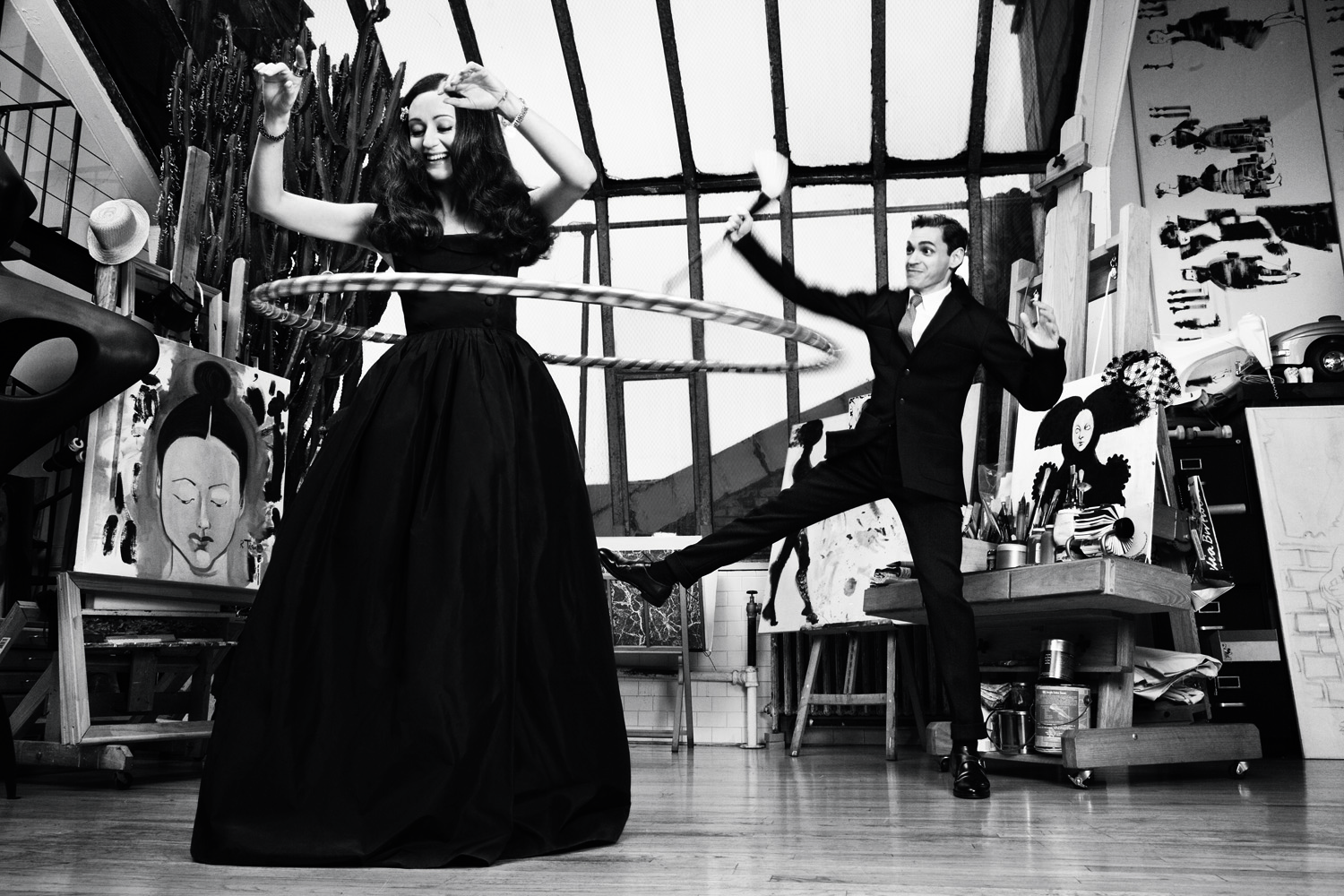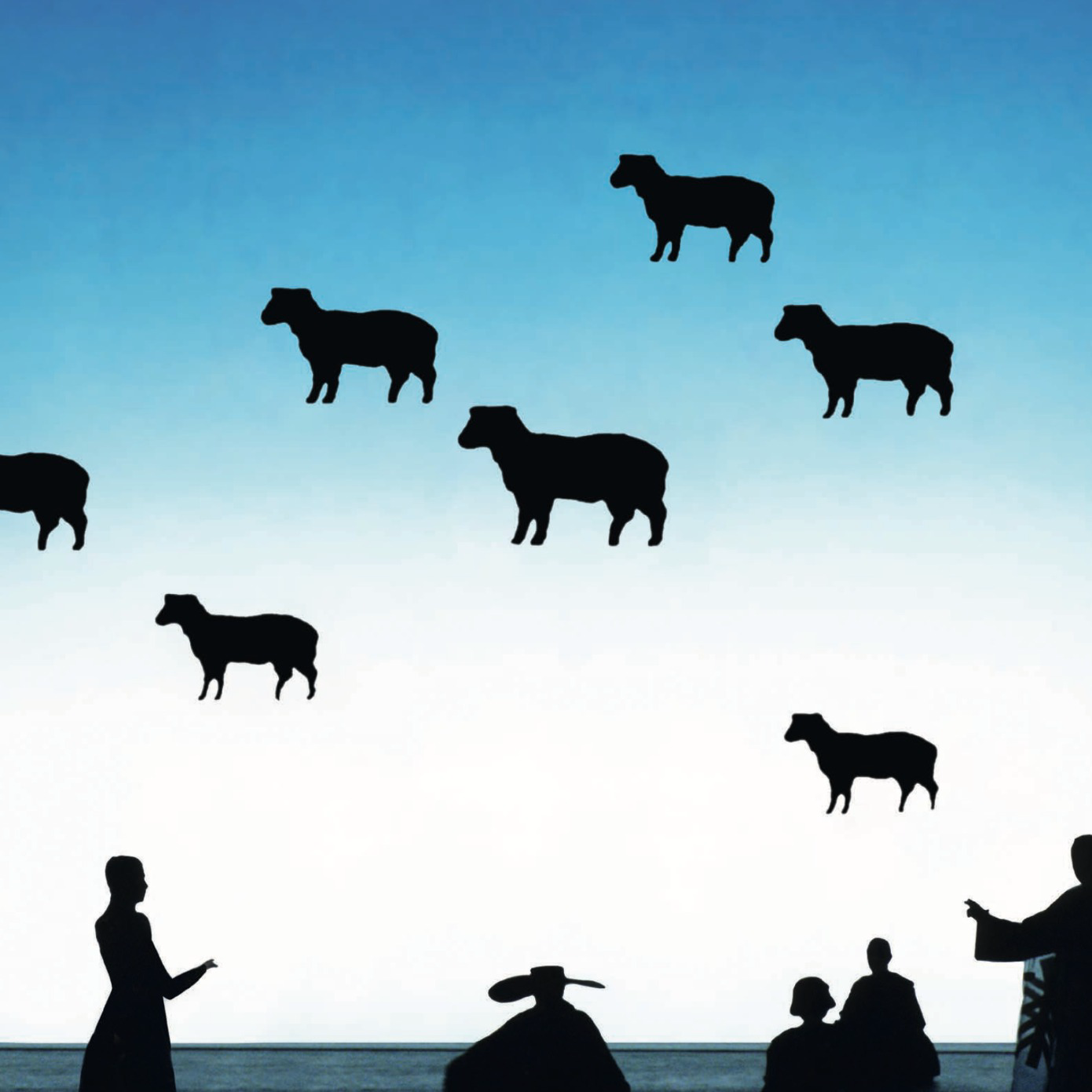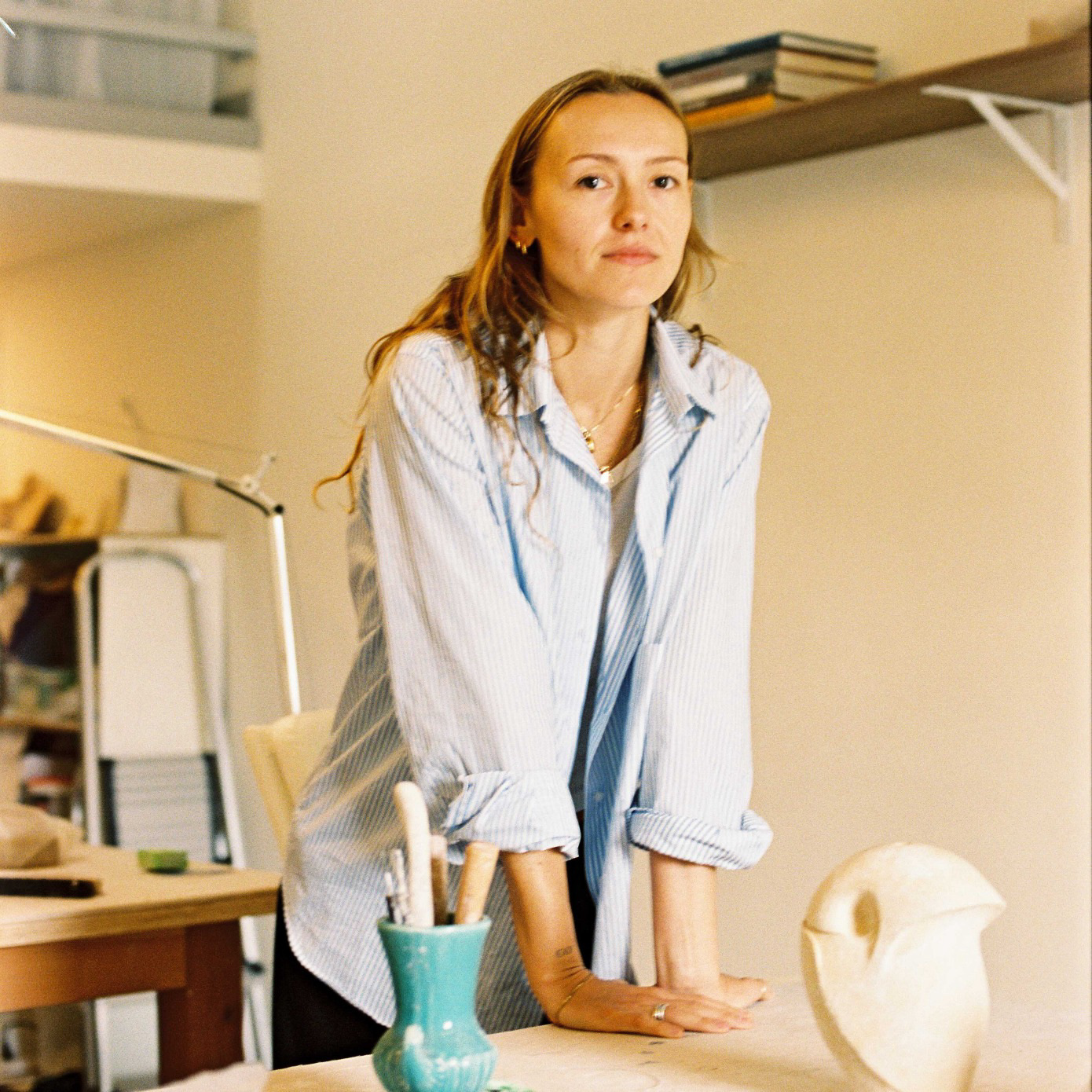
I dreamed lately of Isabel, of her jet-black hair and red lips and wide eyes, eyes like a fawn. They were at once cautious but filled with the innocence that only the greatest minds possess: it is the sword they use to pierce the darkness and pull from it the substance of their art. It was a troubling, see-through dream, because I knew that, in actuality, she was dead. But for now, here, she was alive. Even more troubling was the knowledge, unspoken, that it was her husband Ruben who had died, that half of the heart they shared had indeed fallen away, but that it was not Isabel’s half. Did he give his heart so that she might live, in the dream? I imagine they were so imbued with union that either would have sacrificed themselves for the other to live on. Isabel wore a dress of blood red taffeta, the fabric gathered in bunches and cinched with matching ribbon. Her speech was fast and breathless as if she didn't know where she was. Her house was cut into the side of a yellow hill made of sand. The desert landscape around us was arid and endless, its color contrasting starkly with the red dress, as if the dress was the heart that she and Ruben had shared for so many years.
She seemed unaccustomed to this place, as twitchy as a sparrow. She darted from one spot to another, speaking to a woman dressed in an austere black suit. The woman held a clipboard in one hand and a pencil in the other that made violent little jerks as it checked off a list.
Eventually she disappeared, and I approached Isabel timidly as though she might spook. The words we exchanged sound to me now like muted strains. The individual notes have lost their clarity. Isabel spoke with that twittery cadence of one whose heart is beating fast. She was uncertain of something, and in her nervousness she spilled her secrets into my hands. She paused for a few seconds from time to time to ask herself whether or not I was trustworthy. I wished I could tell her how trustworthy I was, that I would never repeat what she said, that I would take it first into my heart, and then to my grave. But my voice fails me, and my gestures are nothing but empty flailing arms.
I woke up exhausted. The news of her death the previous week had pulled the breath from my lungs when my mother asked me one morning,
Did you hear,
my dear?
That first shock of death knocked my cup of coffee from my hand and it shattered on the floor. I was surprised at how quickly I had lost myself, and my cup, to grief. I did not cry immediately, or even later that day. The news settled on me slowly as though dark figures were pulling a blanket over my body, until it covered my face. The grief came like that.
I spent the day sitting in the sun without seeing its light. A finger-printed wine glass from the previous night sat on the table, its rounded surface hard and cold. I plucked a dead fruit fly from the liquid and gulped down its acidic contents. Something inside me couldn't understand that she was gone. That drenching wave passed over me at last, but the tears came silently, for my pride rebuffed company.
I had come to Isabel through words, reading about her first in magazines and then collecting books on her work over the years. Now I watched her vanish through words as well. Words are tricky little things, never wholly promising their allegiance to what you assume they impart. A messenger obituary waved at her retreating form, but also caught her up in its branches made of sentences. I saw her fading into silken darkness yet held forever in a tangle of adjectives and taffeta fibers. I had her with me, safely guarded like a worry doll, but she was also gone, and reality finally triumphed over my dream.
I met her once on a brilliant, frozen afternoon. My friend, another devotee, and I clung to each other as we climbed the stairs to Isabel and Ruben’s apartment, afraid to trespass into the private world of our idols. We knew that meeting one’s heroes was often a disappointment, and as much as we swore that it couldn't be true this time, we feared the possibility.
Our first sensory experience upon arrival was a pungent smell of fish, and the sight of an extraordinary mise-en-scène. The spacious loft we entered was flooded with light and filled with easels, paintings, books, and dozens of striped hula hoops. A massive cactus stood in the corner, its thorns hung with miniature portraits of Isabel, painted by Ruben. Their laughter bounced off the walls as they repeatedly apologized for the curious smell. They had cooked fish last night but dared not open the windows to the icy winds that pelted the top of their industrially zoned building. “No heat past 6 o’clock, you see,” Ruben said. “Sometimes, we sleep in ski suits.” I was enchanted by how human they were. Idols are usually accustomed to pedestals, but they engaged us as equals, even friends.
If Isabel's mind was that of the sage, then her eyes were those of a child. “If you had never seen an umbrella,” she once remarked in an interview, “and you had no idea what it was for—if it just looked like a dying lily—could you imagine its shape open?” Her curiosity was untouched by the tides that dampen our resolve and corral us into obedience to a bloated master. Fashion is like that, a bulbous entity that often eats its young and mocks its veterans before tossing them to the trash pile. No doubt Isabel knew this, but the reason she remained true to her own vision was not out of self-preservation. It was born of an unrelenting commitment and a blind, sacred devotion to design. Her example was that of the revolutionary: go against the grain. Do not give up. Do not cave in. Have a vision and make no sacrifices in its pursuit.
Over the years she became an invisible personal friend, urging me to avoid the well-worn path, and to keep my blade sharpened to cut through the brush as I made my own way. But above all, her smiling face told me, never forget the delight there is to be found in life, and the sustenance offered by love.
There was a forgotten pack of cigarettes beside me on the table, so flattened in someone’s back pocket that when I put one to my lips it looked ridiculous, like a small white flute. The plumes of smoke drifted up. Even in the sunlight their color was a definitive blue. In search of her I inhaled the new obituaries, but many of them felt weak or prosaic. They sidelined the stories of her formidable talent in favor of a few buzz-worthy points. I snorted in annoyance, accidentally breathing in the smoke and coughing hard, which made me lightheaded.
She was, as they say, a designer’s designer. A painter’s painter, a writer’s writer, a director’s director. Do these visionaries, so doggedly in love with their craft, invariably die in relative obscurity? I suddenly felt a scream rising inside me, a desire to shout into the void of cyberspace, look! look here, this is it, this is why! She’s amazing, can’t you see? For fear of breaking two cups in one day, I pushed the wine glass away from me. My frustration was far from slaked. In the slick and traction-less world of social media, I searched for traces of her presence. Surely there were remembrances by her friends and admirers?
My relief was thick when I found them, and it weighed me down into the chair. The outpouring of emotion was substantial, and for once it felt truly genuine and personal; clearly she had moved others as deeply as she had moved me. They too were casting into the void their sorrow at her premature loss, and their anger that even in death she caused little more than a ripple in the zeitgeist.
Was my frustration merely a reflection of my own desire for recognition? Recognition for all the underdogs, the forgotten visionaries? Many of her contemporaries clamored in her support throughout her thirty-five years as a fashion designer, demanding that she receive more appreciation, more love. But, for the most part they went unheard by a system that rarely listens to smaller voices.
Have I learned nothing? I suddenly asked myself, staring into space so that the trees and clover melted out of focus. The bitter waters of indignation died down, and in the clearing a figure appeared. It was Isabel, wide-eyed and red lipped, her hair cascading over her shoulders. She was hula hooping in a black dress, laughing at the smell of fish in her apartment. "I didn't care about recognition then," she responded haltingly between gyrations, "and I don't care about it now."




